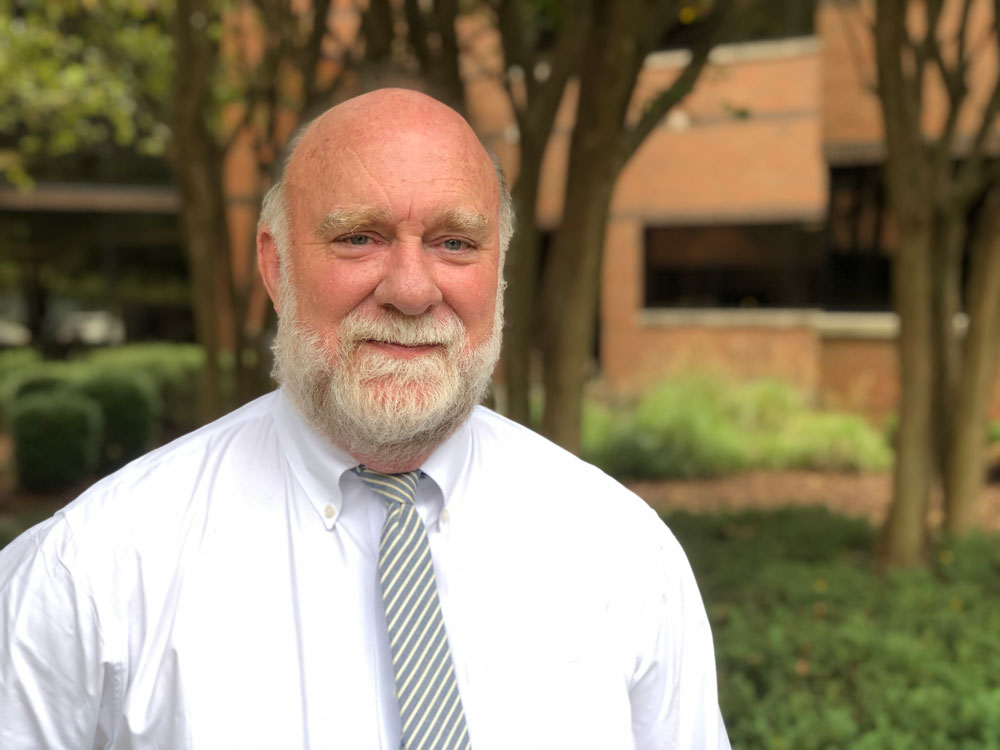BlueCross Executive Reflects on Working Compassionately, Effectively With Medicaid
Dan Gallagher started working at BlueCross BlueShield of South Carolina in October 2013 after a long career in health insurance that took him up and down the East Coast. This year, Gallagher will retire after more than 35 years in the industry.
As the assistant vice president of Medicaid, he brings experience at other Blue Cross plans and extensive knowledge of Medicaid. Part of his storied career saw him starting a Medicaid HMO in his basement in Lexington. After two years, the plan had grown from nothing to almost 30,000 members and 25 employees before being bought by United Healthcare.
Gallagher shares some insights on Medicaid, working for BlueCross and the industry as he nears retirement.
What made you decide to come work for BlueCross BlueShield of South Carolina?
I had worked for a number of Blue Cross plans. I knew it was heavily based on relationships and that the reputation is what drove the relationship with hospitals and the state, which is our only client. I felt very good about it. I knew what I was getting into. I knew I could depend on that internal resource to keep the relationship going forward and to find ways to make it better, and we did. I think we used the power of the Cross and the Shield to create relationships, to improve the ones we had. As a result, it improved our growth and improved our profitability.
Do you feel like you are leaving the Medicaid plan in a good position?
When I started, we had just shy of 50,000 members. Today, we have 130,000 members. We’ve been profitable for every full year so far. The Medicaid program here is a partnership with Anthem. Today it is a 50-50 partnership that is 10 years old. I don’t think we’re going anywhere anytime soon.
What are the misconceptions about people who receive Medicaid?
One of the biggest misconceptions is that there is a lot of fraud. I’m talking about member, recipient fraud and cheating the government. There just isn’t that much opportunity. In terms of people getting benefits that they don’t deserve, it is really hard. There are not a lot of people out there gaining benefits that they shouldn’t get.
Do you have any predictions for the future of Medicaid?
It is so cloudy right now. For Medicaid, there is just so much going on to try to control spending, because it is 25 percent of the population. In addition, the Medicaid population would benefit from having a stronger voice on its behalf.
What are you most proud of in your career?
I’m most proud of the growth and relationship we have with our network, with the state of South Carolina. I think we are the most trusted partner in managed care relationships around Medicaid. They look to us for both planning for the future as well as reaction to what is happening currently.
What is the most surprising thing you’ve learned in your career?
The disconnected nature of health care, especially where it treats a government population. The data necessary to effectively manage someone’s care is so unorganized that it makes it hard for any one provider to adequately treat a patient. There’s no one central source for data.
Second behind that, is that in a rural state like South Carolina, transportation is a huge issue. How do you get patient A to the doctor? How do you get them home? Telemedicine isn’t covered under Medicaid yet, so it is very difficult to get patients to treatment. That is a big hurdle that for decades hasn’t been addressed. It impacts patient care.
What would you like people to know as you leave BlueCross?
As a BlueCross employee, you can show compassion every day and still effectively do your job. That is the key thing that I thought about. There is room in your day to compassionately do your job in an effective way. The system, the environment allows for that. And people here do that. On a daily basis, I’ve seen this. It drives the effective participation of those folks, more than salary, title, anything else.
What was your drive in doing this work?
I could be a very small part of improving the effectiveness of the delivery system. That was my goal more than anything else — improving the delivery system to a needy population.
What will you miss most about working here?
The daily interaction with the people I work with.
Anything you want people to know about working at BlueCross?
I do want folks to know that the BlueCross organization allows people to find their own place where they can be the most effective in combining a personal drive with a corporate one. I just think this is a place where you can do that better than anywhere else. Your personal drive will fit the corporate drive and you can find a place to do both.
As I worked in Blue Cross plans, all supervisory personnel had a responsibility for the well-being and the improvement of their employees. This is especially true here. There’s an opportunity to move yourself and be straightforward about what you want to do. Here, you are provided for. It makes a difference every day to come to work in a place that is protected and comfortable.
What are your plans for retirement?
Travel. I have kids all over the country. I have a whole pile of books to deal with. I’ve been planning this for a while, so there’s a lot to do.
Oct. 17, 2019

Dan Gallagher has worked in health care insurance for more than 35 years. This year he will retire from BlueCross after heading Medicaid at the company for six years.

















